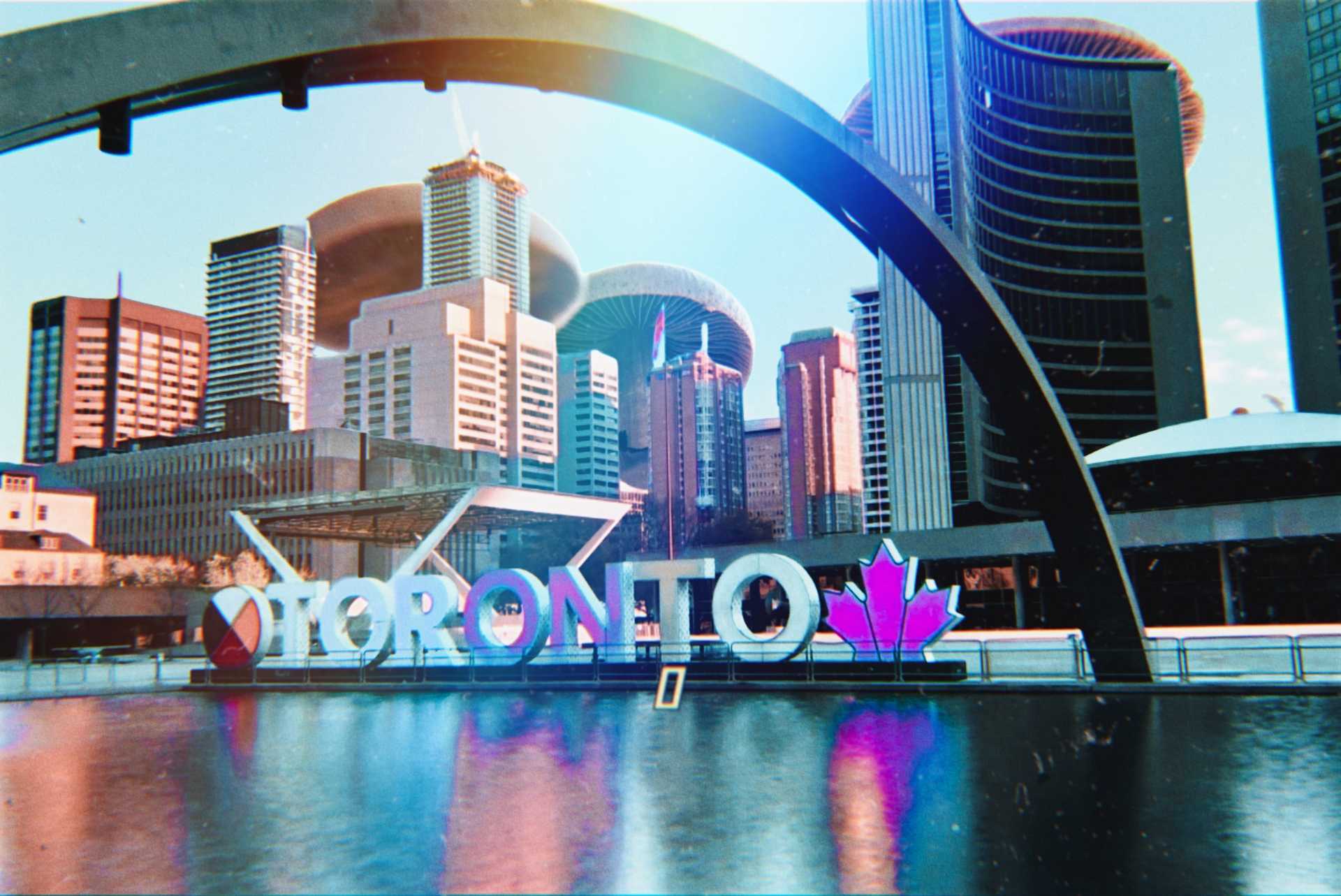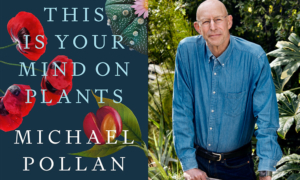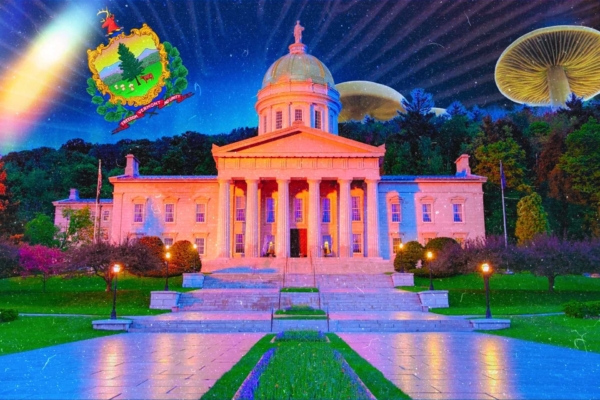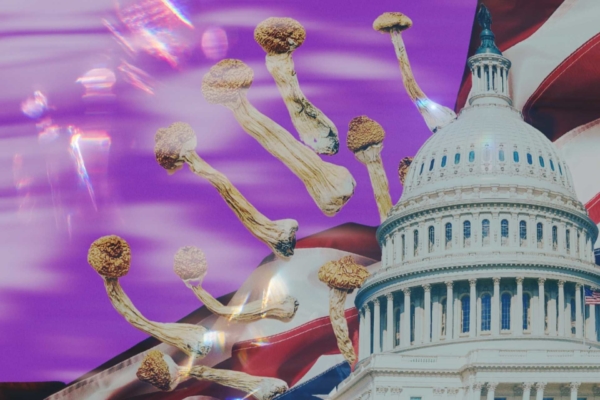
If only there existed something in nature that fruits up overnight to swiftly cover an area, it might provide a useful analogy for the speed at which illegal “magic” psilocybin mushroom dispensaries are proliferating in Canada’s most populous metropolis.
What began with a solitary Shroomyz dispensary opening on hip Queen Street West last September has now bloomed into at least eleven aboveground stores in Toronto, according to travel and psychedelics writer Sofie Mikhaylova. And each day another ‘shroom shop seems to sprout out of nowhere, offering patrons a variety of exquisitely-packaged psilocybin mushroom products.
As a legalization advocate, local psychedelic lawyer, and the operator of PsychedelicLaw.ca, I want to cheer on the newfound accessibility of psilocybin in Toronto. I believe psychedelics like psilocybin, LSD, and DMT pose little safety risk; can yield incredible psychological benefits when used responsibly; and should be no less accessible than alcohol, tobacco, or cannabis are in Canada.
But instead, the rapid spread of psilocybin dispensaries in Toronto alarms me. Their growing ubiquity is causing enormous public confusion as to the actual legal status of psilocybin, and their common “medical” signage and legal waivers are only adding to that, either recklessly or intentionally.
If Toronto shroom shops are going to engage in psychedelic civil disobedience, all power to them. But they should be open, straightforward, and honest about it with their customers and employees, so everyone is aware of the potential legal consequences.
Psilocybin’s Legality in Canada (or, the Mythical “Grey Zone”)
From my experience, those who ask Toronto psilocybin shop personnel about the legal status of their products will likely be told psilocybin inhabits a legal “grey zone” in Canada. And I gather that’s what many shop employees are in turn told or led to believe, since employees have explicitly told me that, and such misinformation appears rampant within Canada’s psychedelic scene.
But in simple terms, psilocybin is illegal in Canada. It is not and has not, in any general legal sense, for medical or recreational use, been decriminalized or legalized in any Canadian province or city.1 In January 2023, Canada’s federal government granted the province of British Columbia a broad and unprecedented three-year s. 56 exemption which decriminalized personal possession of up to 2.5 grams of heroin, cocaine, methamphetamines, and MDMA. The exemption only applies in BC and did not impact the legality of psilocybin possession or sale whatsoever. With very minor exceptions, provinces and cities lack legal authority under Canada’s constitutional division of powers to legislate with respect to criminal law matters. Vancouver, Toronto, and Montreal have all sought decriminalization-related s. 56 exemptions from the federal government, but none of those requests have been granted. Its legal status is resolutely not in a “grey zone”.
On the contrary, psilocybin’s status is remarkably well defined under Canadian law.
Psilocybin was first scheduled in Canada in 1974.
In 1979 and 1980, courts in British Columbia and Alberta found that the legal prohibition of psilocybin possession only applied with respect to synthesized or extracted psilocybin, rather than psilocybin mushrooms in their “natural state”. In 1982, however, the Supreme Court of Canada reversed this interpretation in R. v. Dunn, effectively re-criminalizing psilocybin across Canada in whatever form one might find or obtain it.
Today, psilocybin is listed under Schedule III of the federal Controlled Drugs and Substances Act.
Under s. 4(1) of the Act, “[e]xcept as authorized under the regulations, no person shall possess a substance included in Schedule I, II or III.” Cultivation, trafficking (including sale), import, and export are also all explicitly prohibited absent regulatory authorization.
Except for clinical use, authorization for legal psilocybin access will only be provided pursuant to s. 56 of the Act or the Special Access Program (SAP). Of Canada’s 38 million or so residents, less than 100 persons suffering from extreme physical or psychological illness have reportedly been granted such non-clinical exemptions.2 British Columbia-based nonprofit TheraPsil obtained Canada’s first authorization for non-clinical psilocybin use for cancer fighter extraordinaire Thomas Hartle in 2020. They’ve helped to obtain the lion’s share of exemptions since then.
Companies and institutions can obtain a Controlled Drugs and Substances Dealer’s License which authorizes them to produce, sell, and engage in other activities with psilocybin for strictly prescribed research or medical purposes, including use by SAP applicants. But no authorization or license currently exists in Canada that would allow for the retail sale of psilocybin products of any sort.
The maximum punishment for unauthorized possession of a Schedule III substance is imprisonment for “a term not exceeding three years.” And the maximum punishment for unauthorized sale (trafficking) of a Schedule III substance is imprisonment for “a term not exceeding ten years.”
So, where did this “grey zone” narrative come from?
A Tale of Two Cities (and Inconsistent Law Enforcement)
Growing up in Canada in the 1990s and 2000s, fellow millennials will recall that cannabis was regarded as practically decriminalized in Vancouver long before the Cannabis Act took into effect in 2018. You could smoke a joint anywhere in that beautiful city and the only thing you had to worry about was the rain.
As for Toronto, we weren’t quite as cool as Vansterdam. But we did have the late Hot Box Café’s 420 lounge in bohemian Kensington Market, where, provided you ordered a sandwich or something, anyone could bring their stash and enjoy it in the open with the café’s table vaporizers. 3 Kensington Market remains a Toronto cannabis hot spot to this day, albeit sans Hot Box Café (RIP).
Cannabis then was just as illegal as psilocybin is now, but police in Vancouver and Toronto typically tolerated a degree of public use. Albeit every so often, a place might go a little too far and get raided.
The inconsistent enforcement of cannabis law in those days also confused people as to that substance’s legal status. Adding to this confusion was the federal Liberal government of the time’s various failed efforts to decriminalize cannabis, before the federal Harper Conservatives’ election put those efforts on ice in the mid-2000s.
The thaw came with Justin Trudeau’s electoral victory in 2015, which heralded a new age of Canadian cannabis law clarity: we were officially legalizing recreational cannabis production, sale, and use.
Without waiting for legislation though, cannabis dispensaries began (illegally) opening and selling cannabis in Toronto. Police didn’t seem to want to bother shutting them down, since it was now practically certain that cannabis would soon be legal across the country. What was the point?4 Following legalization, most of these illegal shops would, however, either be shut down, transition to legal operation, or frustrate the city to the point of cement-blocking off their entrance.
Following legalization, the number of dispensaries around Toronto became straight up ridiculous. Now you can’t throw a stone in downtown Toronto without hitting two cannabis shops, and many are being forced into closure due to market oversaturation.
Gastown’s Psilocybin Renaissance
At some point, as the psychedelic renaissance seeped into our contemporary collective Western zeitgeist over the last two years, stores in Vancouver just started openly selling psilocybin.
As with cannabis back in the day, Vancouver police don’t seem to care. In fact, they’ve been kind enough to state that pretty openly. And now stores in the 604 – like the Medicinal Mushroom Dispensary operated by legendary cannabis legalization activist Dana Larsen – are even reportedly selling LSD, DMT, peyote, and other substances.
Not long after first hearing reports of Vancouver’s shroom shops, I started getting calls for legal assistance opening similar stores in Toronto. I refused to get involved because what the callers wanted to do was clearly illegal, and I told them as much. 5 I’m bound by the Law Society of Ontario’s Rules of Professional Conduct which prohibit “knowingly assist[ing] in…any dishonesty, fraud, crime, or illegal conduct” or “advis[ing] a client or any other person on how to violate the law and avoid punishment.” But I knew one way or another, Toronto would be getting its own shroom shops soon enough.
The Toronto Police Service’s Shroom Shop Policy (or Lack Thereof)
Roughly two months after Toronto’s first psilocybin dispensary opened last September, the Toronto Police Service (TPS) raided the shop. Two employees, ages 20 and 23, were arrested and charged. The store, however, remains operational.
Since then, as far as I’m aware, there hasn’t been news of any more raids, arrests, or charges filed against Toronto dispensary personnel.6 Though in nearby Hamilton, a store called The Mushroom Cabinet was raided and shut down the day after it opened. So, is the coast clear? I contacted TPS to ask for their official position on the city’s psilocybin dispensaries.
The force’s response was characteristically ambiguous: “Psilocybin is a controlled substance listed in the [Controlled Drugs and Substances Act] and is illegal to sell or possess without an exemption from Health Canada. The Service will continue to investigate complaints of person(s) who contravene the aforementioned act when appropriate.”
So, will TPS take legal action against the city’s shroom shops or not?
“The Service will not divulge there [sic] actions as they may relate to any current or future investigations.”
But just as the sale of psilocybin in Vancouver led to more (illegal) psychedelics being sold openly, I expect Toronto’s psilocybin stores will quickly branch beyond shrooms to sell LSD, DMT, and other substances (if they haven’t already). Especially considering increasing competition between shops, the high cost of real estate in the city’s downtown, the low price of psilocybin, and the common understanding that those who consume psilocybin don’t typically do so on a frequent basis.7 Except perhaps with microdosing, which per the term requires very little actual product.
And as stores continue testing the legal waters of what they can get away with, my concern is that a possible future crackdown may embroil employees, customers, and others under the false impression that these shops aren’t operating in clear contravention of applicable criminal law. 8Additionally, even absent criminal charges, open involvement with illegal psychedelics can have legal repercussions for people in in the context of employment or family law. I’ve encountered several people who found themselves in situations where a former spouse uses evidence of open and illegal psychedelic use for adverse purposes in custody or other legal disputes.
The State of the Six
Meanwhile, all this is occurring at an inopportune time for Toronto. The city is facing a crushing housing crisis, an unprecedented crime wave (with a flurry of bizarre random attacks on public transit), and our mayor recently resigned due to a sex scandal.
There’s a growing sentiment that things in the city are out of control.
A bunch of stores openly selling illegal psychedelic mushrooms all of a sudden probably isn’t helping to quell that feeling. Nor is the lack of any clear TPS position on how it plans to respond to the proliferation of shops.
But it’s unrealistic to think that we won’t see more shroom shops absent a legal crackdown. Or that all shroom shops will uniformly operate with a high degree of transparency and ethical commitment.
So, let’s at least get one thing straight.
If you plan to shop at, work at, or open a psychedelic dispensary in Toronto, please do so with awareness of the associated legal risks.
Marc Z. Goldgrub is a lawyer at Green Economy Law Professional Corporation (www.greeneconomylaw.com), a boutique Toronto law firm with a focus on green business, psychedelics, and housing. He also runs PsychedelicLaw.ca.





